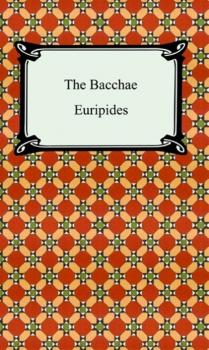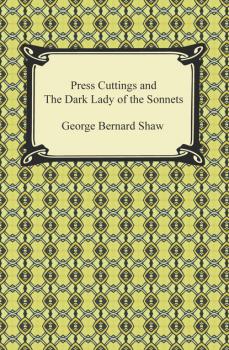ТОП просматриваемых книг сайта:
Зарубежная драматургия
Различные книги в жанре Зарубежная драматургия, доступные для чтения и скачиванияАннотация
William Butler Yeats was born near Dublin in 1865, and was encouraged from a young age to pursue a life in the arts. He attended art school for a short while, but soon found that his talents and interest lay in poetry rather than painting. Awarded the Nobel Prize for Literature in 1923, Yeats produced a vast collection of stories, songs, and poetry of Ireland's historical and legendary past. These writings helped secure for Yeats recognition as a leading proponent of Irish nationalism and Irish cultural independence. One of several dramas based on the legend of the Irish hero Cuchulain, «Dierdre» is one of Yeats' most popular one-act plays. It tells the story of Deirdre, the imaginative and otherworldly young heroine, and King Conchubar, the faithless and selfish monarch. Yeats explores themes of love, honor, deceit and self-sacrifice in this tragic but artful drama.
Аннотация
Sir James Matthew Barrie (1860-1937), best remembered as the creator of Peter Pan, was a Scottish author and dramatist whose works have enjoyed frequent revivals in film and on stage. «Quality Street» appeared in 1903, one year before the production of Peter Pan, as Barrie was becoming somewhat of a sensation in the theatrical world. This four-act comedy is an adult fairy tale of sorts, brought to life by Barrie's charming imagination and ability to weave between reality and fantasy. Pheobe Throssel and Valentine Brown are a young couple separated by the Neopoleonic wars for ten years, only to find themselves the unfortunate victims of time and age upon their reunion. This story of lost love, spinsters, secret disguises, and the complexities of human emotion will enchant readers today as much as it did the audiences of New York and London over a century ago.
Аннотация
Nikolai Vasilievitch Gogol, the Molière of Russia, was born in the sunny Ukraine in March, 1809, and died in Moscow forty-three years later. The author of Russia's famous national comedy, «The Inspector-General,» Gogol was the first dramatist of his country to write plays on the Western European model, even as his friend Pushkin was the first Russian poet to introduce the Western strain into the literature of his people. In the comedy «Marriage,» which Gogol began in 1832 as «The Wooers» and completed only in 1842 in its final form, the author attacked in his inimitable manner the modern problem of escape from marriage. By unexcelled, mirth-provoking characterization, and with delightful irony, Gogol satirized the fear of marriage inherent in the soul of the average man. «The Gamblers» is a masterpiece of dramatic suspense, and has been hailed in Europe as a model for plot development. With a few strokes, Gogol drew this set of characters whose purpose in life is so similar, yet whose manners are so individual. When «The Gamblers» was first produced in Berlin, it made a striking impression on the audience whose mystification was complete to the very end.
Аннотация
Pierre-Augustin Caron de Beaumarchais (1732-1799) was an exceptional French writer of prose comedy during the eighteenth century. He is best known for his theatrical works of the three Figaro plays. Beaumarchais had an action-filled career as a watchmaker, musician, secret agent, businessman, diplomat and a financer of revolutions. His literary career was as turbulent as his personal life. After a series of lawsuits in Paris, the accounts of his trials made his reputation as a sarcastic, effective, and recognized writer. «The Marriage of Figaro» is the second in the Figaro Trilogy, preceded by «The Barber of Seville» and followed by «The Guilty Mother». It was originally a comic opera, or a mixture of spoken play with music. This play was considered a foreshadowing of the French Revolution in its offense of the rights of the aristocracy. It was first banned in Vienna due to its satire of the nobility, considered dangerous in the decade before the revolution. Thanks to the great success of its predecessor, it opened with enormous success, eventually becoming one of Mozart's most successful operatic works.
Аннотация
Euripides, the youngest of the trio of great Greek tragedians was born at Salamis in 480 B.C., on the day when the Greeks won their momentous naval victory there over the fleet of the Persians. The precise social status of his parents is not clear but he received a good education, was early distinguished as an athlete, and showed talent in painting and oratory. He was a fellow student of Pericles, and his dramas show the influence of the philosophical ideas of Anaxagoras and of Socrates, with whom he was personally intimate. Like Socrates, he was accused of impiety, and this, along with domestic infelicity, has been supposed to afford a motive for his withdrawal from Athens, first to Magnesia and later to the court of Archelaues in Macedonia where he died in 406 B.C.
Euripides's «The Bacchae» is considered by many to be one of his greatest surviving works. It is the story of Dionysus's arrival in Greece and his attempt to influence the people there to worship him.
Euripides's «The Bacchae» is considered by many to be one of his greatest surviving works. It is the story of Dionysus's arrival in Greece and his attempt to influence the people there to worship him.
Аннотация
Christopher Marlowe lived a life that echoed the violence in his plays. He was born in 1564 and was murdered in 1593 in what is speculated to be a political assassination. An educated man, he received both his B. A. and M. A. at Corpus Christi College, Cambridge, where it is believed that he wrote Part I of «Tamberlaine», and possibly «Dido Queen of Carthage». Machiavellian themes are present in much of Marlowe's work, the main characters constantly involved in a tumultuous upward climb toward unattainable infinite success. Marlowe's perhaps greatest legacy was introducing blank verse into English theatre with «Tamburlaine The Great, Part I.» This collection includes: «Dido Queen of Carthage», «Tamburlaine, Parts I & II», «The Jew of Malta», «The Massacre At Paris», «Edward The Second», «The Tragical History of Doctor Faustus», «The First Book of Lucan», «Ovid's Elegies», and «Hero and Leander».
Аннотация
Contained in this volume are three of Oscar Wilde's shorter dramatic works. ‘Vera, or the Nihilists’, the longest of the three, is a complete four-act play with a prologue. ‘A Florentine Tragedy—A Fragment’, is as the title would suggest a fragment of an act and ‘La Sainte Courtisane’ is also but a single act. Wilde fans will delight in these shorter examples of his talent as a dramatic humorist.
Аннотация
George Bernard Shaw (1856-1950) is revered as one of the great British dramatists, credited not only with memorable works, but the revival of the then-suffering English theatre. Shaw was born in Dublin, Ireland, left mostly to his own devices after his mother ran off to London to pursue a musical career. He educated himself for the most part, and eventually worked for a real estate agent. This experience founded in him a concern for social injustices, seeing poverty and general unfairness afoot, and would go on to address this in many of his works. In 1876, Shaw joined his mother in London where he would finally attain literary success, and went on to win the Nobel Prize for literature in 1925. Contained in this volume are two of Shaw's lesser known works: «Press Cuttings» published in 1909 and «The Dark Lady of Sonnets» published in 1910.
Аннотация
The second-to-last play of the famous Norwegian dramatist, Henrik Ibsen, was written in 1896. «John Gabriel Borkman» is the story of its title character, a former bank manager who has been imprisoned for embezzlement. The story takes place long after his release from prison. Having suffered financially from the imprisonment of John, the Borkman family is at odds over the future of their son, young Erhart Borkman.
Аннотация
Often recognized as the father of tragedy, this collection of plays by the ancient Greek soldier and playwright Aeschylus is a testament to his skill and enduring legacy in the history of theatre. In «Suppliant Maidens,» the fifty daughters of Danaus flee from marriages to the fifty sons of their uncle, showing an obedience to their father that has tragic consequences. «The Persians» is thought to be the oldest surviving play still in existence today, and is additionally unique because it focuses on the enormous defeat of the Persian King Xerxes rather than a myth distant even to the ancient Greeks. The gods are punishing the hubris of the Persians to the point at which even the Greeks feel some sympathy for them. In «The Seven Against Thebes,» the battle for the throne of Thebes upon the banishment of Oedipus pits two brothers against each other in a fatal bout of single combat. Finally, «Prometheus Bound» explores the myth of a Titan and his punishment from Zeus for giving fire and knowledge to mankind. Though all of the plays differ widely in plot, the enduring quality of the characters and dialogue within these dramas are a testament to the considerable skill of Aeschylus.










